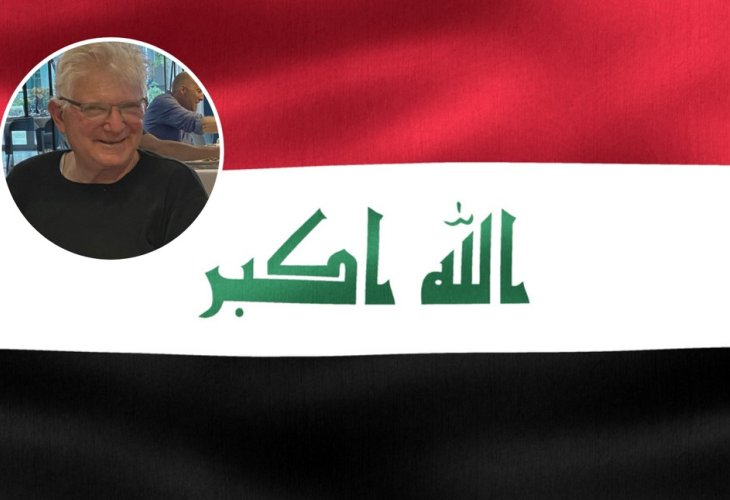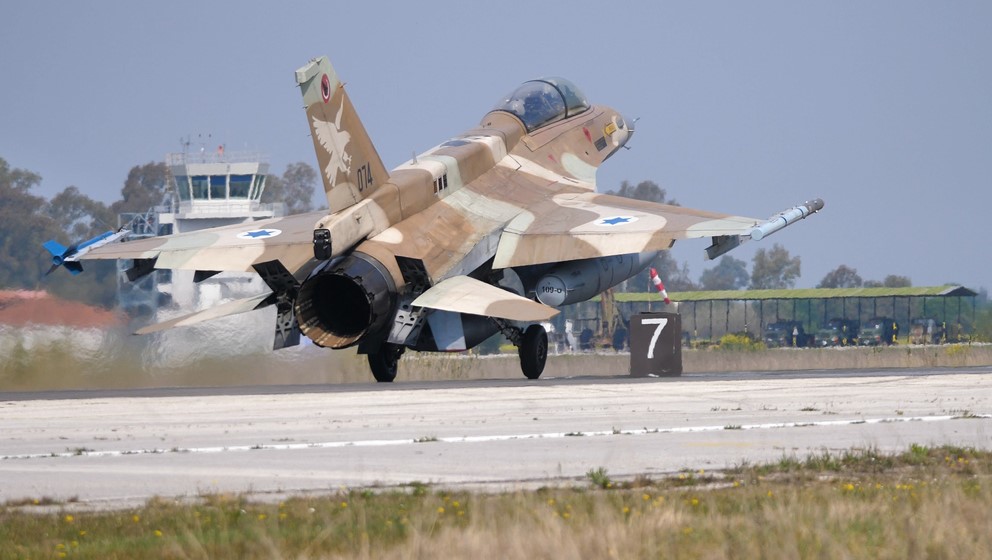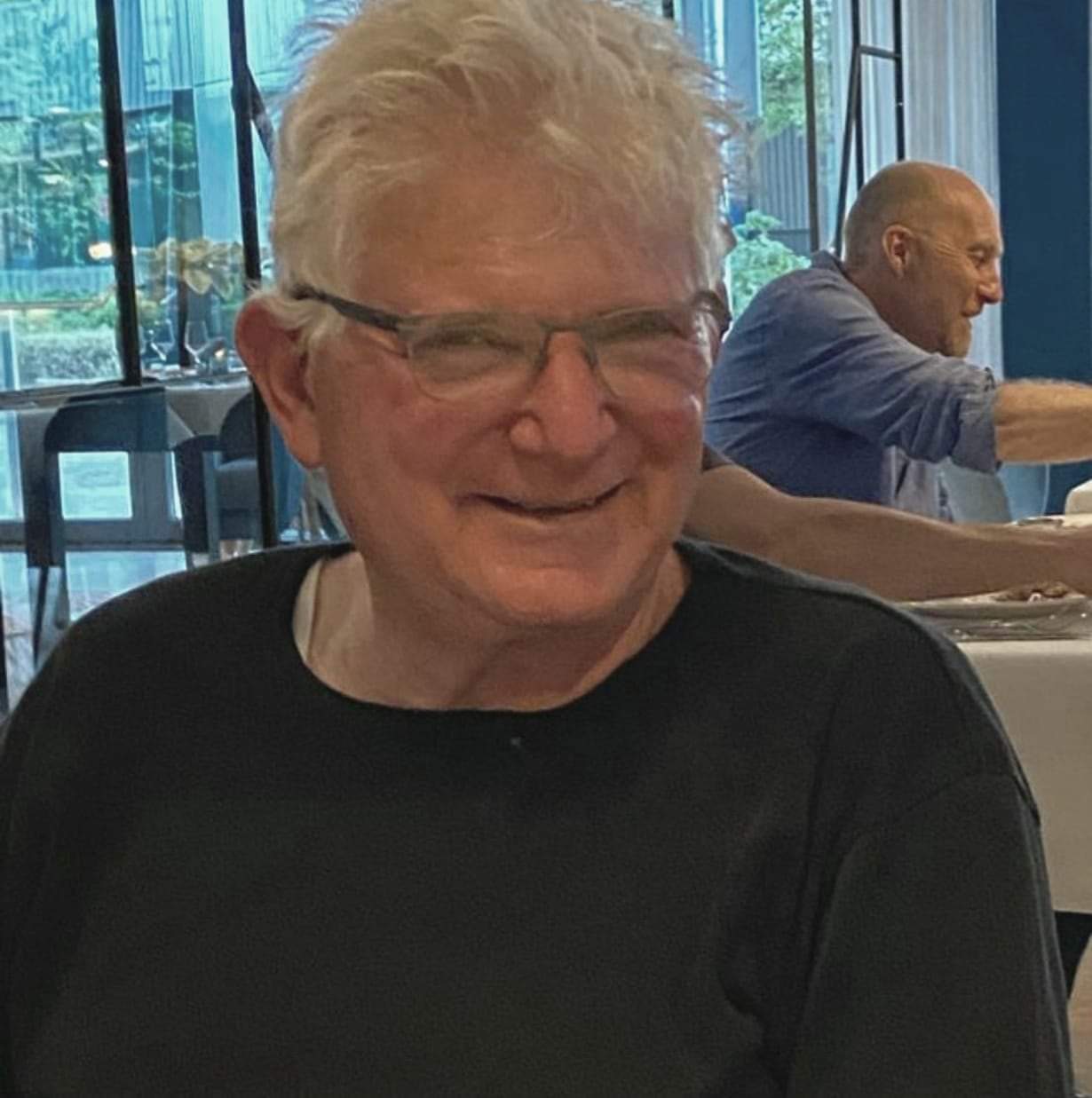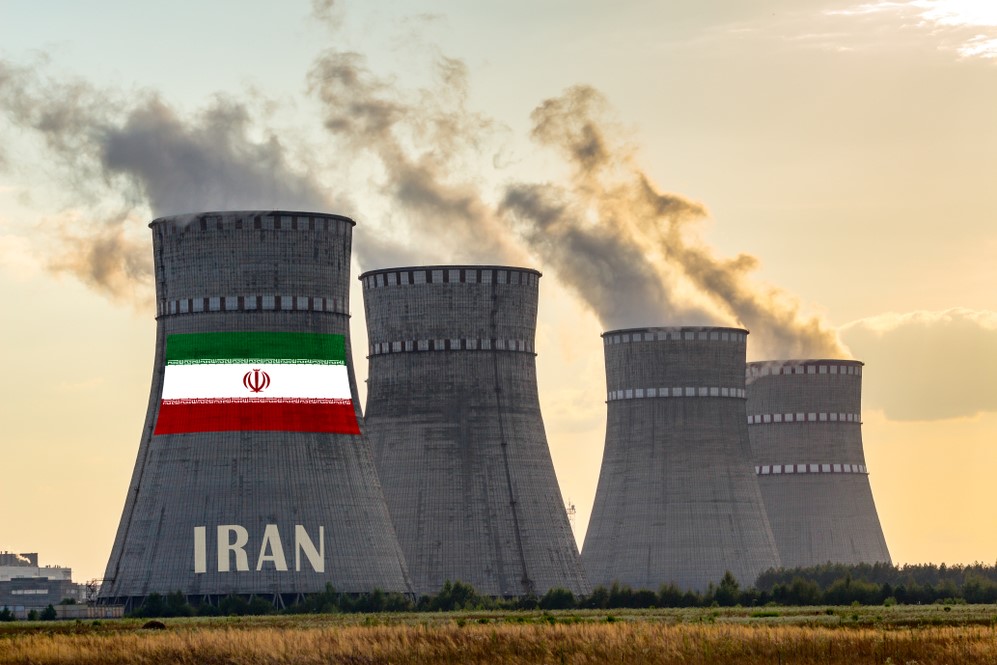"F-15 Planes Waited to Down Enemy Aircraft, But the Skies Were Empty": Colonel Zeev Raz Recounts the Fateful Night in Iraq
The odds of returning home safely were slim, but retired Air Force pilot Zeev Raz didn't hesitate as he led his plane toward the Iraqi reactor. In an interview, he shares the pivotal event, the miracles during the tense flight of his life, and recalls the verse that accompanied him back to Israel.
 (Photo: Shutterstock)
(Photo: Shutterstock)"Do you know the significance of entering deep into Iraq when it's at war and its aircraft and anti-aircraft units are on high alert?" retired Air Force pilot Zeev Raz rhetorically asks at the beginning of our conversation, instantly transporting us to that fateful afternoon before Shavuot 39 years ago when he and a small group of Israeli pilots made history.
It happened when the most significant threat to Israel was Iraqi tyrant Saddam Hussein. Raz, then an outstanding Air Force pilot, was sent with his colleagues to eliminate Israel's greatest threat at the time: the nuclear reactor that the brutal tyrant was building near Baghdad.
75-year-old Raz accurately recalls every detail of the dramatic event etched in the chronicles of Israel. But first, he takes us back to his significant service in the Air Force, which led him to participate in the historical attack that is chronicled in Israel's annals. Raz began his Air Force service during the Six-Day War era. "I was accepted into flight school in 1967," he says. "Later, I carried out my first bombing sortie during the War of Attrition against an Egyptian post, and I didn't stop flying for many decades. Among other things, I participated in the Yom Kippur War, conducting numerous sorties on the Syrian and Egyptian fronts."
 (Photo: Shutterstock)
(Photo: Shutterstock)At a certain point, Raz retired from the Air Force but returned after just a year in civilian life, being appointed as the deputy commander of Squadron 69, and then becoming the squadron commander. It was in this role that he was expected to receive the mission of his life. The day he was called to bomb the nuclear reactor is one he can never forget despite the passing years. "The Air Force commander called me and informed me that Israel was interested in attacking the reactor. At the time, Israel was still considering whether to carry out the operation, but they wanted to ensure the military option was viable," notes Raz.
A Recommendation from Ilan Ramon
At that time, Iraq was about to complete the construction of its first nuclear reactor, "Tammuz 1." "Initially, the Soviet Union, Iraq's main arms supplier, deliberately deceived its ally, providing incomplete systems that couldn't enable the creation of a nuclear reactor. Consequently, the Iraqis decided to abandon the original plan and turn to the French," says Raz.
France, having distanced itself from Israel in those years, decided to sign an agreement with Iraq to build two reactors: "Tammuz 1" and "Tammuz 2." The threatening picture unfolding viewed from Israel's perspective caused a stir in the security community, prompting Prime Minister Menachem Begin to decide that Iraq must be prevented from acquiring nuclear weapons, even at the cost of using force. With the decision looming, Raz was summoned to lead the operation to attack the nuclear reactor.
At that time, Israel received the American F-16, the pinnacle of military aviation technology. As the first commander to receive these planes, I was chosen to command the squadron summoned to the Air Force commander's office, David Ivri. He surprised me by stating his desire to plan an attack far from Israel, against the nuclear reactor in Iraq.

At what point did the security establishment decide to task you with preparing for the operation?
The importance was that the operation would not occur while the reactor was active. At that time, it was estimated that within less than two years, the reactor would be operational and hot, and we realized immediately that bombing a hot reactor was not an option because it would cause extensive environmental harm and result in many civilian casualties, a situation Israel couldn't stand. Therefore, from that moment onward, a race against time began to allow the reactor's attack as soon as possible.
Raz returned to the base to investigate if an attack was feasible, with the main challenge being the great distance to Iraq at a time when Israel didn't have refueling planes. "The fighter jets had to fly about a thousand kilometers without landing in another country for refueling – a situation that the Air Force had never encountered before."
How do you determine whether the mission is possible?
"To understand if we could indeed do it, I summoned my navigation officer, Ilan Ramon, z"l, and asked him to investigate it. Ramon returned after some time and informed me that it was a complicated mission that could be accomplished, but barely. For me, it was the sign to inform the Air Force commander that we could accomplish the task.
Thus began training for the operation, without the other pilots knowing why they were practicing. "They didn't ask questions but understood they were training for a significant event. The exercises were different than usual, involving long low-altitude flights (to avoid radar detection). Avoiding radar detection was a significant challenge during the mission. We sought to avoid identification in the air. Besides the low flight, we decided to take off from Etzion base in Sinai, where the Jordanian radar could not detect us (in the end, the Jordanian king saw the planes from his yacht, but with divine mercy, this did not affect the operation, D.P.). We also flew over Saudi airspace, where they had no radars in the northern part, so it wasn't a problem for us. Naturally, the Achilles' heel was the operation within Iraqi territory itself."
What did you do about the fuel shortage?
Indeed, it was an extremely challenging situation. Even the Americans struggled to believe afterward that we hadn't used refueling planes during the operation, which, of course, we didn't have. To cope with the distance limitation, we took off with full fuel tanks right up to takeoff – contrary to manufacturer instructions due to the risk of igniting the aircraft. Additionally, we discarded the drop tanks over Baghdad to avoid weighing down the planes further, leading to increased fuel consumption – also contrary to the manufacturer's guidelines."
I assume you encountered other issues besides limited fuel
Besides the fuel shortage, the military risk was significant. Suffice to mention that the Iranians failed at a similar scheme to attack the reactor shortly before. One must understand that the Iraqi reactor was better protected than Israel's reactor in Dimona, according to foreign reports. While Israel's Dimona reactor is close to the border with mountains nearby that assist any aerial assault operations, Baghdad is easy to defend; it's deep within Iraq with vast surrounding areas under Iraqi control. Aircraft invading the area can be intercepted very early. This is compounded by the flat land around the capital, where aircraft cannot hide from air forces or anti-aircraft units.
On this background, Chief of Staff Raful told us just before the operation: 'Guys, if anyone falls into Iraqi captivity – just tell them everything. After all, you don't know anything'...
Let's hit the road
After prolonged training, Raz gathered the eight pilots for a briefing, revealing the operation's aim: "I told them I couldn't say it until now, but I'm now informing them that all the recent training was for attacking the Iraqi nuclear reactor. Silence filled the room."
All those days, Raz was very careful to keep the secret to himself. "I didn't even tell my close family." But neither he nor the rest of the pilots believed that the operation would actually occur. "In fact, there was one instance when we prepared the planes, loaded the missiles, and took off, but in the end, the mission was canceled. Two weeks before the mission, another plan was canceled. The belief in the base was that the operation wouldn't be carried out in the end. It wouldn't be brave enough to execute, we believed." Yet, 41 years ago, a month ago, eight fighter jets took off from Etzion base towards Iraq. Alongside the jets were three pairs of F-15 aircraft meant to provide air cover. Simultaneously, about 60 aircraft took off to provide various area cover, including rescue helicopters in case the jets were downed and planes meant to disrupt radars and conduct cyber warfare.
"We reached Etzion," recalls Raz the fateful day. "The bombs were loaded onto the planes, we were connected to the fuel tankers and took off towards the unknown. We overcame one hurdle, as the refueling happened right until takeoff – as planned, against the manufacturer's instructions, risking the pilots' lives. Encouraged by the smooth start, we flew for about an hour and a half, after which we discarded the fuel tanks over Saudi skies. Crossing the border into Saudi Arabia and approaching Baghdad, surprisingly, no radar locked onto us, and no plane launched against us."
How was the moment of bombing the reactor?
"It happened incredibly fast. After approaching the reactor, we accelerated to a fuel-efficient speed, about 700 kilometers per hour, rose sharply, then descended in a dive angle towards the reactor, and from there, we fired two unguided bombs, each weighing a ton. After I bombed the reactor, the following attack waves arrived and carried out the exact same action. Unlike the Syrian case, we relied more on quantity in the heart of Baghdad and less on quality, which the Air Force had at a later period."
"By the time the Iraqis realized these were enemy aircraft, we were already done with the bombing. We took off back to Israel, amazed to hear that all planes returned safely. More astonishingly, we discovered that even the F-15 planes, waiting to down Iraqi pilots, had no need to act at all."
"I precisely remember those moments when I was flying the plane back to Israel, the sun before us not setting. As we marveled at the miracles witnessed, it felt like returning to the days of Joshua Ben Nun, who commanded the 'Sun, stand still at Gibeon.' To all of us, that verse later ran through our minds. It was clear to us that a special divine providence accompanied us on our way to Israel, after previously tangibly aiding us in the action we had performed just moments earlier to remove the existential threat facing Israel."
Now 75, Raz has long left the pilot's seat and is involved in fighting the severe accidents occurring at construction sites, leading to workers' deaths. But memories from Iraq still haunt him today, as he claims the Iraqi intelligence sought him out for some time afterward. "A few years after the attack on the Iraqi nuclear reactor, I received intelligence from Israeli services that the Iraqis were seeking to harm me as the person who led the formation to strike the reactor. Since then, I prefer to keep crucial details about me confidential," he tells us.
And what is the opinion of the man who, with divine assistance, removed the nuclear threat from Iraq, about the nuclear threat from Iran? Here he remains far more skeptical. "It is a night and day difference," Raz says concerning a potential Israeli strike in Iran. "The Iranian case is entirely different because only the nuclear reactor is responsible for the nuclear fission. But the fissile material with which fission is produced, Iran manufactures at many points scattered throughout its territory, deeply buried under earth."
 (Photo: Shutterstock)
(Photo: Shutterstock)Raz believes that in Iran, Israel will not succeed in destroying the Islamic Republic's nuclear plans. "Unlike our action in Iraq, which led to halting the project and destroying it, the achievement in Iran would not only be much lower, with no guarantee that everyone would return safely, but the Iranian retaliation would likely be very harsh and complex. The severe attack in Buenos Aires could be a sample if we bomb Iranian nuclear facilities."
To the man who commanded the bombing of Iraq's nuclear reactor, it is clear that "Israel should not solve the Iranian nuclear problem. It should be the free world, Americans, and Saudis." Still, Raz is sure the Iranian nuclear race must be thwarted. "I recently spoke with the author A.B. Yehoshua, who passed away not long ago. He told me: 'They know we have nuclear weapons.' However, I do not think so; I do not believe in mutual deterrence between Israel and Iran. While India and Pakistan as rivals or any other nuclear power in the world manage against a relatively similar area-sized rival, our case is different. Here, little Israel cannot risk it, also due to the vastly different Iranian mentality than, say, India's. It is not for nothing that it is said Israel is a one-bomb country."
With the former Air Force member's earlier realization of the need for divine providence at Israel's most critical security moments, one could also say this about the Iranian project, which shall not slumber or sleep now either, guarding Israel.

